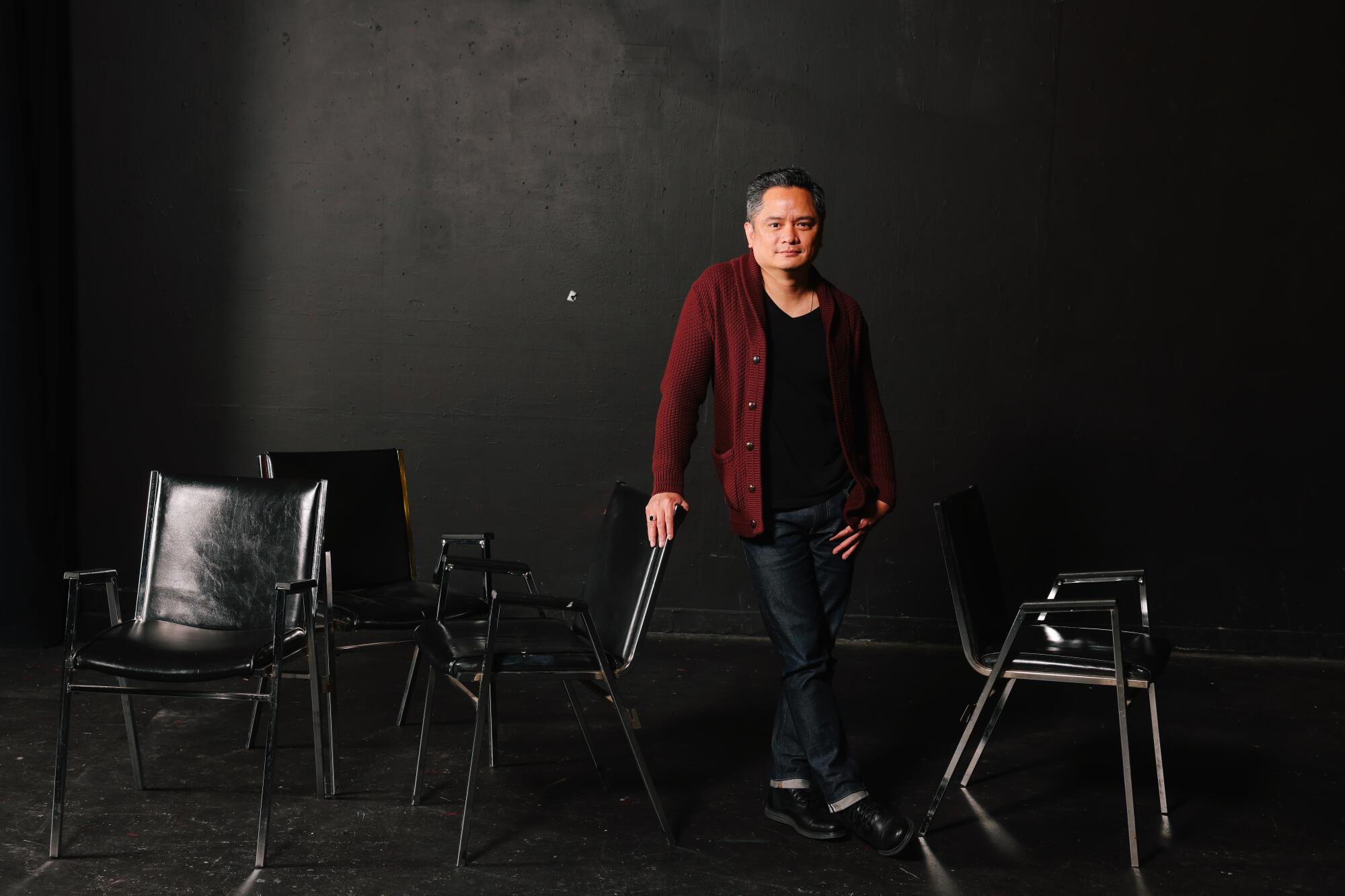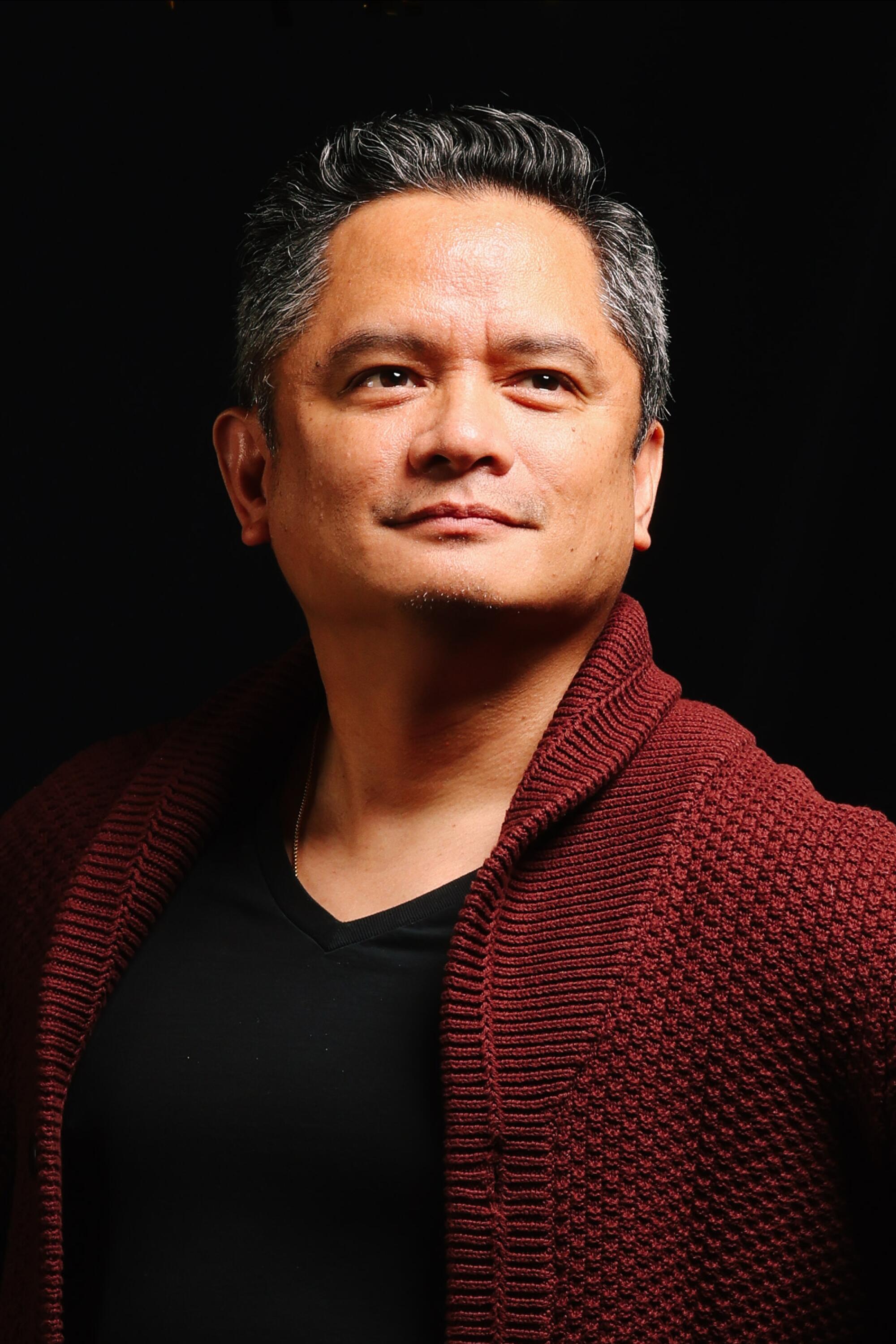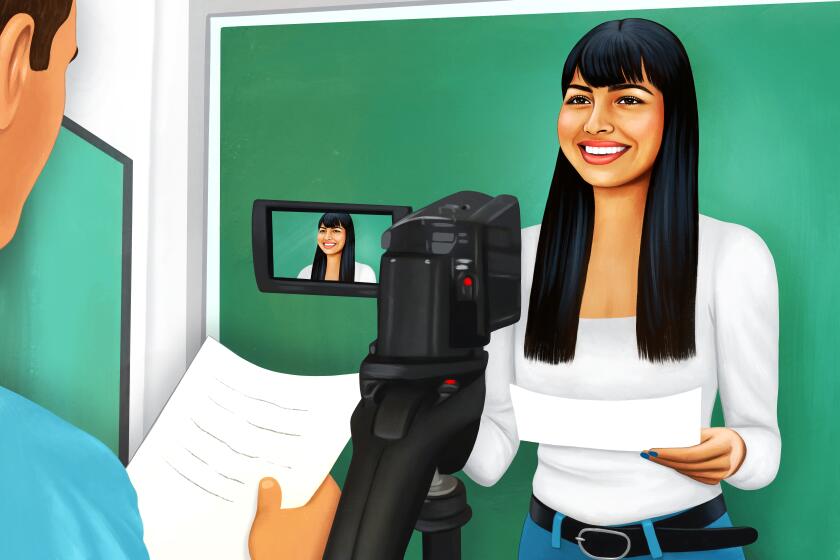
- Share via
Rodney To tells his acting students at USC that he doesn’t like using the word “success” in this profession, because it’s all relative.
“If I ever use the word ‘success’ at all,” he said, it means “that somebody is able to make a lifetime’s career out of something as mercurial and precarious as being an actor.”

People often don’t see the humble beginnings of an actor, To said. Some might recognize him for his role as Typhoon in “Parks & Recreation.” But he booked that role almost 15 years into his career.
He got his Screen Actors Guild card not from a popular TV series, but by doing a tampon commercial.
“A young college graduate takes three of her best friends on a trip to Europe,” he explained. “We get lost and we’re all panicking, except for her. She’s not worried. She got us on the right path, because she was wearing Tampax.”
He got his first American Federation of Television and Radio Artists card — this was before SAG and AFTRA merged — doing an employee training video where he played “Martin Tan from Singapore.”
He still remembers his one line: “I love it here in America, because they have really great rice.”

Hollywood careers
What defines success?
This profile is part of a series about what success looks like to working actors in Hollywood.
To didn’t grow up thinking he’d become an actor. He studied chemistry in college in Milwaukee and took an acting for non-majors course only after he felt burnt out from STEM classes.
The professor who taught that class was a Jesuit priest whose claim to fame was that he played a policeman in the “Blues Brothers” movie, To said. He encouraged To to audition for a college production, and from there, someone from the Milwaukee Repertory Theater saw him and asked if he wanted to intern with them.
“My version of the story is that they saw me and were like, ‘Hey, this kid looks nothing like anything that walks through our stages,’” he said. “It wasn’t very diverse, but I kept thinking: What an amazing thing to have a life where you wake up every day and know that you have the job of going to the theater.”
He eventually moved to New York, where he would get theater gigs — but none of them paid. “I’d always tell everybody we got a bottle of water and a handshake,” he said.
So he always had other jobs. He was a temp. He worked the front desk at a hotel. He was the commercial operations clerk at The Discovery Channel. For six years, he was a coordinator — and eventually director — of an international travel company, where he arranged group travel for elderly Americans. That job allowed him to travel the world.
Sometimes he wished he could make a living just by acting, but he came to see his paying gigs as part of his recipe for success as an actor.
“I’m not wired to go, ‘Let’s throw caution into the wind and wait for acting opportunities to come,’” he said.
He rejects the romanticization of a starving artist.
“I’ve never starved,” he said. “I don’t mean it like, I was a loaded person, but I’ve always known that in order to do my art, I have to provide for myself.”
The job of a Hollywood actor is equal parts creative and business. Professionals demystify what the job is and how to strategize for a long career.
For a career that’s so public, a working actor’s wins aren’t always apparent to outsiders, he said.
To has always had a similar challenge when trying book roles: “I’m too old to play young, but I look too young to play old.”
He met casting director Dori Zuckerman when she was casting “The American Mall,” the 2008 MTV musical film starring Nina Dobrev.
He wasn’t a conventional choice, because he was 35, playing an 18-year-old,” but she told the filmmakers, “If you want the best actor for the part, you hire Rodney,” he said.
“‘The American Mall’ was a failed movie,” he said. “There was a lot of talk about it being the next ‘High School Musical,’ and it was not.”
But To came out of that experience with something just as valuable: someone willing to advocate for him. “To this day, I credit her with my life in Los Angeles,” he said.
To credits another of his personal advocates, casting-director-turned-professor Dan Shaner, with his own transition to academia. Shaner was looking for a working actor to add to the USC faculty. Now, To enjoys teaching so much that he sees it not as a side job, but as a parallel career.
As an assistant professor at the USC School of Dramatic Arts, To teaches on-camera acting and business-prep courses. But one of his favorite classes to teach is a seminar specifically for non-actors to learn about what it’s like to be a professional actor.
“It’s really about trying to demystify it, so people can really see us as viable contributors to the world,” he said.
To always told himself he’d act until he couldn’t do it anymore. Three decades into his career, he recently acted in what he considers one of his most fulfilling roles, the Filipino American family comedy “Easter Sunday,” starring Jo Koy. He also recently finished shooting “The Brothers Sun,” an upcoming Netflix action-comedy about Taiwanese brothers — which features Michelle Yeoh.
And he is the co-associate artistic director of the L.A.-based IAMA Theatre Company.
“For a long time, I’d say that my trajectory was unconventional,” he said. “But the truth is — now that I’m this many years into the business — I realized that I actually represent the majority of actors.”
Photo editing and design by Calvin Alagot.
More to Read
Inside the business of entertainment
The Wide Shot brings you news, analysis and insights on everything from streaming wars to production — and what it all means for the future.
You may occasionally receive promotional content from the Los Angeles Times.













